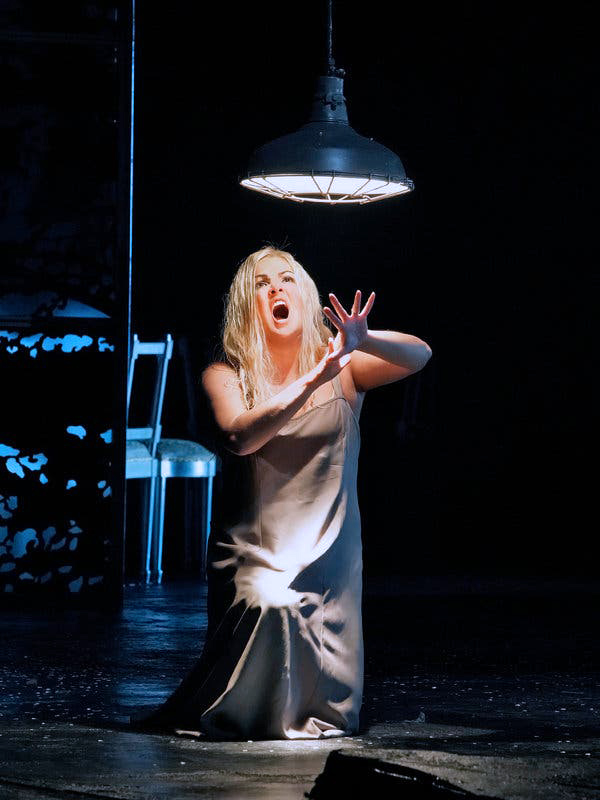The Metropolitan Opera’s new fall season began with a bumpy start. Placido Domingo was scheduled to sing the title role in Verdi’s “Macbeto” and sang it very well at the dress rehearsal. Soon afterwards he announced that he was withdrawing from all his scheduled performances at the Met due to unsubstantiated rumors of sexual harassment against him. The Met did not defend him or investigate any of the rumors that had spread, so he said he would no longer sing at the world-renowned venue. He forcefully denied that any sexual harassment had occurred and flew back to Europe. The baritone Zeljko Lucic was then announced to sing all of the remaining performances of “Macbeth,” but on September 28, Lucic announced he was sick and withdrew from that performance. Therefore, those of us in the audience were told that a new singer named Craig Colclough would be making his Met debut singing Macbeth that evening. The performance was then delayed for thirty minutes due to technical difficulties with the set and the audience was treated to the sounds of a multitude of hammers from the area of the stage.
Since no one had ever heard of the new baritone, the audience was expecting the worst, but the performance turned out to be terrific. The new baritone sang a wonderful Macbeth with a beauty of tone and animated acting as well. He received a standing ovation at the end – and a star was born. Colclough sounded impressive and his voice reminded me of a young Sherrill Milnes, a great baritone who sang this role thirty years ago at the Met.
The rest of the cast seemed inspired by the newcomer. Anna Netrebko had sung Lady Macbeth five years ago; in this performance, she was even better. The singer displayed wonderful low notes which she has recently developed, but was still secure with her top of range notes. Her acting has become even more captivating in the role as the bloody wife of Macbeth. Costumed like a young Marilyn Monroe with long blonde hair, Ms. Netrebko made the role one of sexual fascination and frenzied ambition for her and her husband.
Marco Armiliato conducted a very exciting reading of the Verdi’s score, emphasizing the primitive rhythms in the music, certainly appropriate for the primitive emotions in this most bloody of Shakespeare’s tragedies. Additionally, Adrian Noble’s production seemed black and ominous, with wonderful magical appearances during the witches’ prophecies for Scotland under Macbeth’s control.
The Russian basso Ildar Abdrazakov’s Banquo made an innocent foil to Macbeth’s plotting to grab the throne of Scotland. Ildar sang the part beautifully while trying to protect his son Fleance, well-sung by Misha Grossman. Giuseppe Filianotti’s Malcolm made a wonderful foil with his youthful tenor voice. Matthew Polenzano’s sweet tenor voice also impressed as the victimized Macduff, whose family is slaughtered by order of Macbeth.
Verdi’s “Macbeto” remains his darkest and gloomiest opera and his music well captures the gloom and violence in Shakespeare’s darkest and bloodiest tragedy. I would have liked to hear Domingo in this role, but he is now 78 years old and had been singing gloriously at the Met for 51 years, so maybe it is time to give the younger generation a chance at these roles. Craig Colclough did not disappoint as a new Macbeth.





